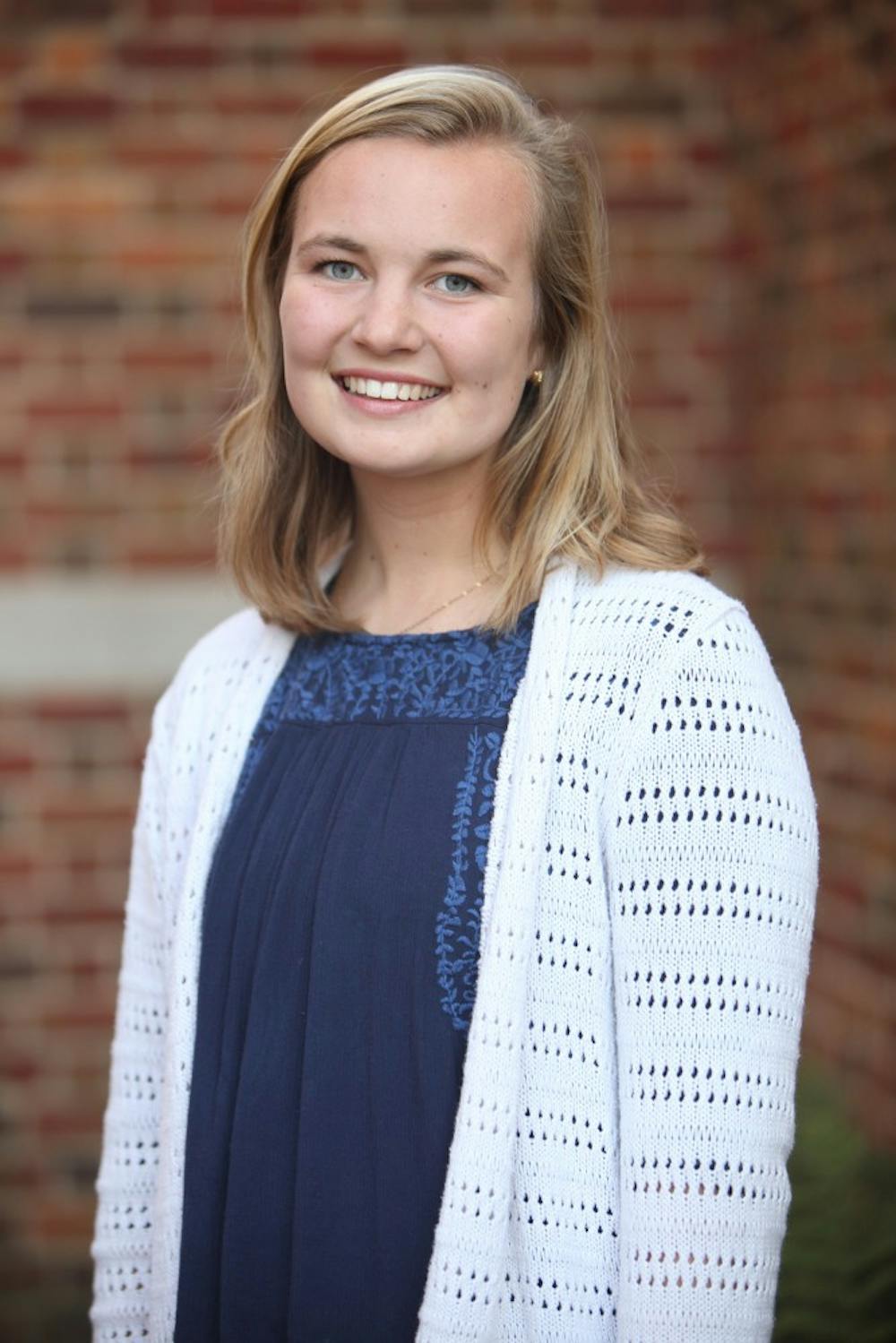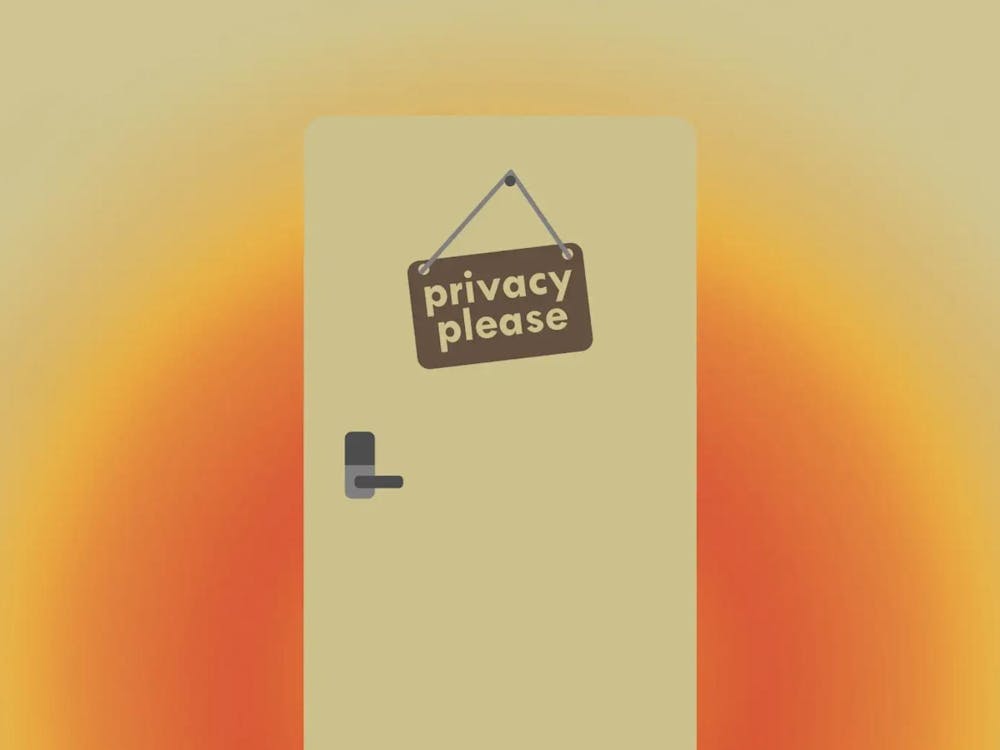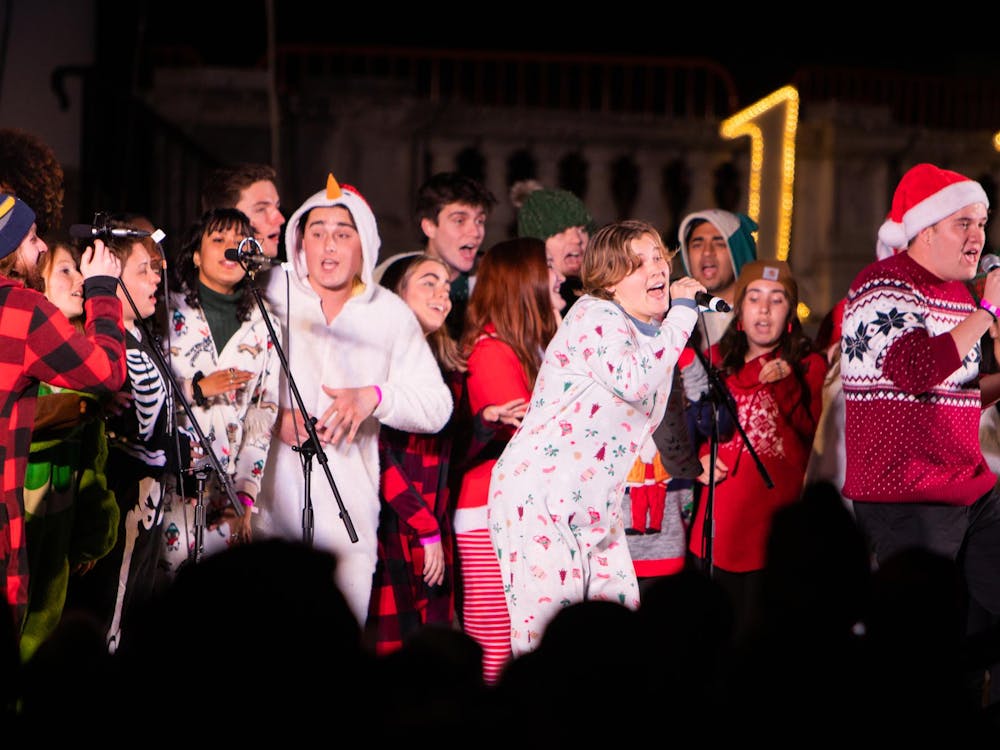Lately, I’ve spent quite a lot of time looking at a pink and blue painted canvas hanging in my room. It’s a treasured gift, and it’s beautiful in aesthetic and in wisdom. Intense and bright colors fade into a pale center, framing Maya Angelou’s words outlined in gold:
“I've learned that people will forget what you said, people will forget what you did, but people will never forget how you made them feel.”
One week into school, we’re navigating, as students at home in the community of Charlottesville, a fragile, emotional, political and incredibly vast web of conversations in the epicenter of a national storm. Hot tears are shed as we weave bits and pieces of memory and reaction together, creating a story factually similar and yet — quite jarringly — experimentally different than what has been reported by the news, broadcasted across every station.
Once again, we are young and new in a world of crimes old and repeated. As we live out the aftermath, many of us want desperately to take action. In the face of our political and social climate, what becomes equally as frustrating as the injustice we see acted out on a national scale is our inability to act and create justice on a competing scale. We long to respond in healing with equal gravity to that with which we were hurt — we long to make a counter-movement of redemption matching the severity of the initial impact. In the midst of such a large storm, we often feel paralyzed by the miniature nature of our own power.
The question of what to do becomes — through a pessimistic lens — what can we do. Some of us will surely hold large quantities of social, political and economic power through our future professions, connections and efforts. Most of us will not. What we need to come to terms with is this: as individuals, we have power. While the scale of our power does and will continue to vary, the reality of our power does not. We — each and every one of us — are living in the center of our own spheres of influence.
We need people with the vision and desire to influence the nation as presidents, CEOs and renowned social activists. We also need people to act kindly and generously to the strangers they pass on the sidewalk. We are a nation of people walking down the street, passing other people walking down the street. Your interaction, your conversation, your fear, your empathy, your words and your body language — this is the everyday public policy of America. Let us not give up on the latter pursuit because we are overwhelmed with not being the former.
If you are looking for a place to start, you need not go anywhere. Look around you — what do you see? Perhaps in front of you is a group of friends, a class full of students, a church, a family, an organization, a house, a ministry or a workplace. What if we were courageous enough to start there, right where we are, working to bring justice to those people — the people directly surrounding us — in our words, tone, body language, eye contact, actions, assumptions and thoughts?
I don’t make laws. If I wait to act until I do, I will never be the change I wish to see in the world because I will be stuck waiting for my actions to operate on a scale I may never achieve. I do go to this University. I sit in classes ranging from 20 to 150 students. I lead Young Life at Albemarle High School. I coach field hockey there. I want justice and I want dignity for all people — I try to fight the paralyzing reality I can’t offer such things on a global scale by offering them in conversations and small gestures.
Audre Lorde wrote in her commencement address delivered at Oberlin College on May 29, 1989 — “Power is relative, but it is real.”
Don’t believe the lie you can’t do something real because you can’t do something on the same scale of what has been done here. Every day you wake up and you interact with people — know your power, your influence, your beliefs embodied in your presence is real.
I find myself falling in love over and over again with this Maya Angelou quote not because I doubt that we, as University students, are capable or going to do and say things worth remembering — on the contrary, I believe we will make history. I love it not because I want to downplay the importance of memorable words and actions, but because I believe that every day we create impressions and feelings for others more memorable.
Did I allow someone to feel understood? Did I help someone feel heard? Did I allow someone to feel loved? Did I aid someone to feel like they belonged? Did I ensure someone felt as though I saw them as a person of intrinsic worth? These are the questions I ask myself. They are weighty, they are important, they are acted out in the context of one day lived by one person, they have power.





